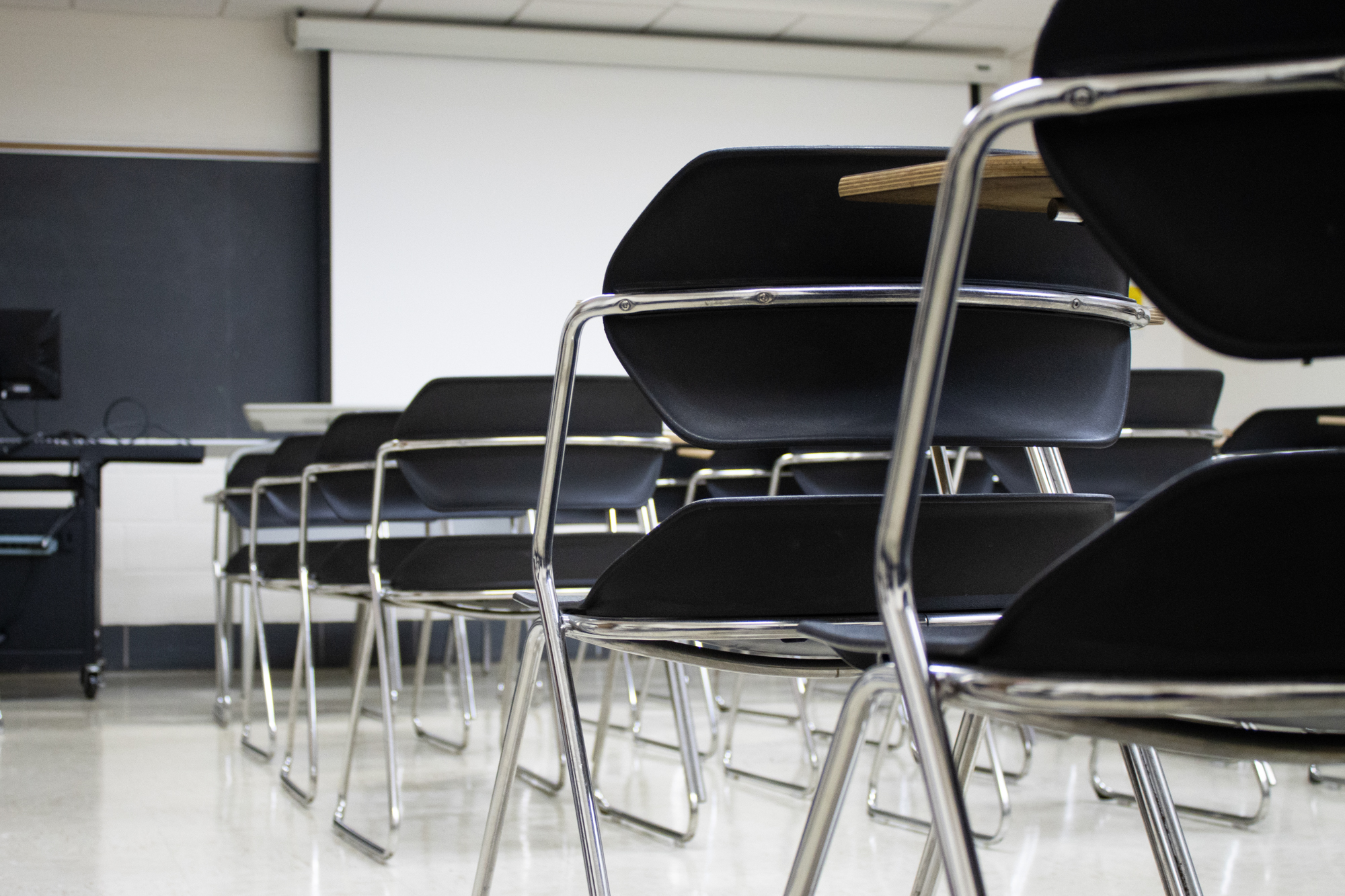Views expressed in opinion columns are the author’s own.
Synchronicity has recently become a thing of the past. Missed a lecture? You can check lecture recordings on Canvas. Can’t make it to a meeting? No worries, you can call in through Zoom and sit in virtually. It’s never been easier to have a schedule conflict, thanks to the internet.
The internet has become the single most mainstream medium of communication between people in both academic and professional settings, which is generally a good thing. And yet, there is one leap most professors and universities have yet to take: digitizing final exams. The University of Maryland and its professors should make finals online and asynchronous for the safety, flexibility and convenience of both professors and students.
Intuition may argue in-person finals make the most sense, both historically and practically. Sitting in a crowded lecture hall writing vigorously and watching people gradually finish the exam while you struggle feels like a rite-of-passage in the college experience.
However, we never stop to ask: Why must we do this? Especially with the seemingly-unenforced mask policy the university has given students in classrooms, there really is no need for students to physically be present for their final exams. There are obvious COVID-19 concerns that come with large gatherings such as these — lest we forget the end of last semester and the ensuing KN95 mask mandate post-winter break. Having finals in person — particularly at a rigid and unmovable time — would incentivize sick students to take exams in person, putting the other students and faculty present in needless and avoidable danger.
It’s bad enough when a cramped and difficult two-hour exam likely boils down to determining your overall final course grade. However, when the student who sits next to you can unknowingly infect you with COVID-19, in-person finals make even less sense.
Personally, I’ve felt much more comfortable and confident in my performance in online assessments and assignments. I feel as though my heart rate is lower, and my grades end up slightly higher. I say only slightly because, for those rightfully concerned about academic integrity and the ease of cheating on online exams, there isn’t a massive difference in scores between asynchronous and in-person exams. Students taking an undergraduate computer science course at the University of Illinois only experienced a three percent jump overall in average scores, proving there is not a significant grade advantage when taking online exams. Other schools, such as the University of Pennsylvania, have provided similar research and advised asynchronous exams for students by citing the main differences in test-taking policies as the comfort and flexibility asynchronicity grants students.
For international or out-of-state students like myself, asynchronous finals would tremendously ease the transition of moving out. My family would have ample time to figure out when to come down from New Jersey and would be able to do so when it best suits their schedule as opposed to within 24 hours after my last final, as per university policy.
We all have obligations outside of school, and although school is my first priority, the rigidity of the final exam schedule has disrupted my ability to not only schedule other activities during the exam period, but even to study for the exams in the first place. I’ve even had to pass on shifts at jobs and reschedule interviews outside the imminent, week-long final exam window, which is characterized by despair, misery and shouting at midnight before 8 a.m. exams. By moving exams to an asynchronous, online format, meeting the demands of both extracurricular commitments and the exam period itself will be eased for students.
Given the technological progress we have made in adapting to a pandemic and re-evaluating the necessity of our physical presence when our productivity has not faltered virtually, the obsolete practice of in-person examinations must go.
For the welfare, ease and adaptability of both students and faculty, this university should move past the archaic nature of difficult and restrictive exams in a cramped lecture hall — make final exams asynchronous and virtual.
Rohin Mishra is a freshman government and economics major. He can be reached at rohinpmishra@gmail.com.



